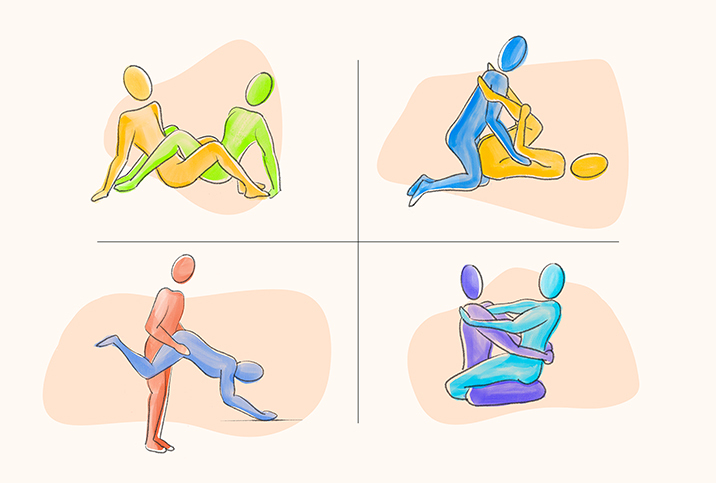Tips for Starting (and Sticking to) a Workout Routine

If you have a hard time sticking to a workout routine, you're not alone. Only 1 in 3 adults partake in the recommended amount of weekly physical activity, with less than 5 percent getting 30 minutes of physical activity daily, according to the U.S. Department of Health and Human Services.
The chances are you know you need to be active, but if your workout feels like a chore or just another task on your busy to-do list, it's going to be difficult to start and stick with a regular routine.
Don't think of a workout as being about achieving a certain svelte look or staving off heart disease, even though both are admirable goals. Working out is good for all areas of your health. It can alleviate mild to moderate depression, boost self-confidence, impact productivity, provide you with more energy and even improve sexual wellness. According to the folks at Harvard Health, a few hours of moderate-intensity cardio work each week can even help prevent and reduce the chance of erectile dysfunction (ED).
A little exercise each day (or the majority of days each week) can pay off dividends in all areas of your life. If you struggle with consistency—or building the momentum to actually get off the couch and give it the old college try—here are some tips to formulate a realistic routine.
Pick a form of exercise you enjoy
If you hate running or the idea of going to the gym a few times a week makes you cringe, simply don't do that.
Contrary to popular belief, exercise isn't meant to be torture.
You don't have to huff and puff your way through a strenuous workout to reap results. Walking your dog, hitting the pool for a series of laps, cycling through your neighborhood park or working on your '70s disco dance moves from the comfort of home are all excellent forms of cardio exercise.
Even if no form of exercise makes you jump up and down with excitement, choose the option that sounds the least painful and the easiest one to squeeze into your schedule. Taking a walk on your lunch break or riding bikes with your kids after school, for example, are ways to make an activity work with your schedule, rather than working your schedule around your exercise.
Set a goal, make a plan and schedule it
It's hard to achieve anything if you don't have a plan. And it's difficult to be motivated to follow a plan if you don't set an achievable goal for yourself.
Beyond exercising because you should, try setting a goal that feels important to you. Maybe you want to get off a blood pressure medication, be fit enough to run your first 5K, or perhaps you'd like to impress someone as they watch you complete a series of pullups without assistance.
Whatever your goal is, pick something meaningful to you that will make you feel strong and healthy. And once you've picked a goal, don't hesitate; start scheduling a weekly workout routine immediately to help you accomplish it. For instance, if you want to run a 5K three months from now, schedule three to four days per week for a walk that over time becomes more of a power walk, then maybe after a month or so becomes a run.
The key is to schedule your workout into your planner app at least a week in advance so you don't mess up your exercise plans with a pesky meeting or appointment. Set the appropriate reminders on your cellphone and do the prep work so you're ready to go when your workout reminder starts beeping at you. For instance, pack a gym bag the night before and make sure you add a 10-minute buffer on either side of your workout period so you have time to shower and change clothes.
Set rewards and be accountable
External motivation is a great way to keep your eye on the prize when you feel like skipping a workout.
When making your plan, schedule rewards based on a predetermined number of completed workouts or mini-goals you achieve along the way. Again, if you're working toward your first 5K, you might reward yourself with a new pair of running shorts after completing two full weeks of workouts or running a full mile without stopping.
There are lots of ways to keep yourself accountable when it comes to exercising. For example, you could enlist a workout partner (family and pets count), hire a coach or trainer, or join an online workout community and start writing a journal about your progress.
The objective is to find a way to manage your accountability by blending your success with an external source—even if you're the only one who knows about it. In this way, failure to achieve a goal is something you have to actively acknowledge and which now becomes the incentive to find a way to fix the problem before the next scheduled workout.
Remember, you're an adult
At the end of the day, it's important to acknowledge that you're an adult and you're solely responsible for your own life, your own priorities and your own decisions. No one else is going to sweep in and make healthy lifestyle changes for you—you have to find the wherewithal to do it on your own.
Adults do a lot of things they don't feel particularly enthusiastic about because they know it's their responsibility to do so and it's good for them. Even if you struggle to harness the motivation to work out, it's important to remember your health is your responsibility. You can do this!


















